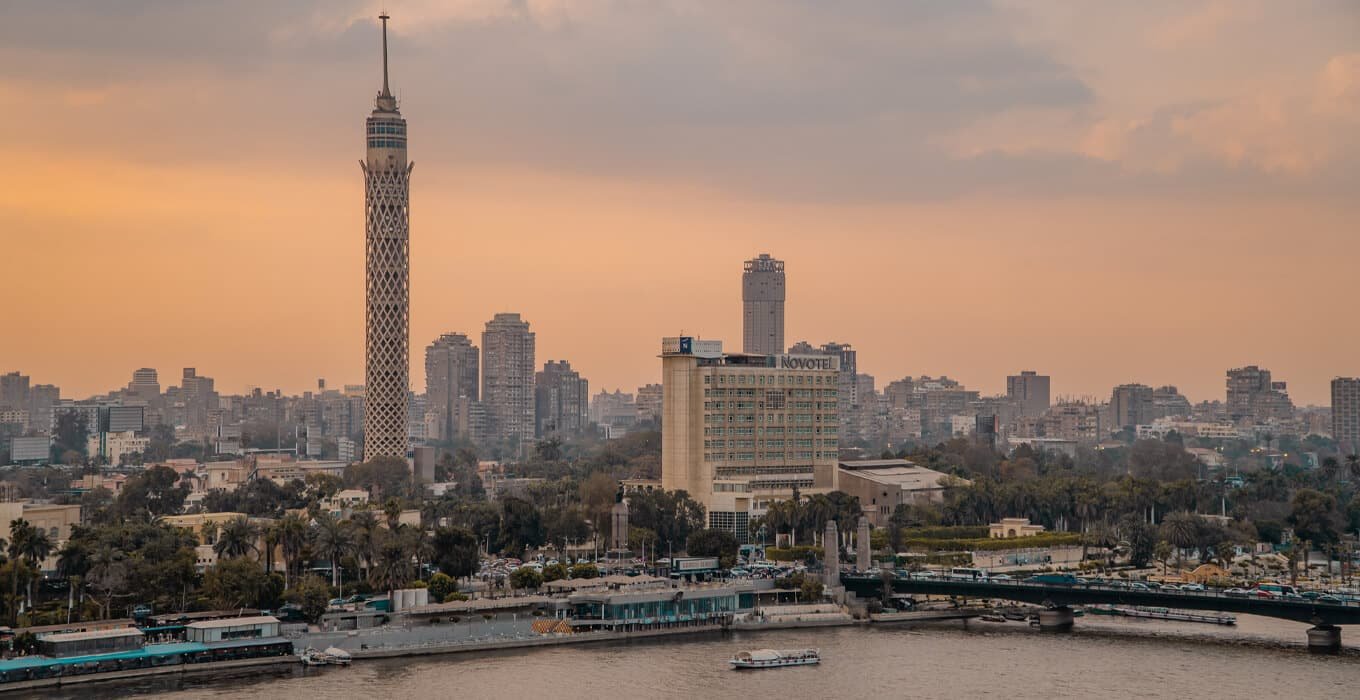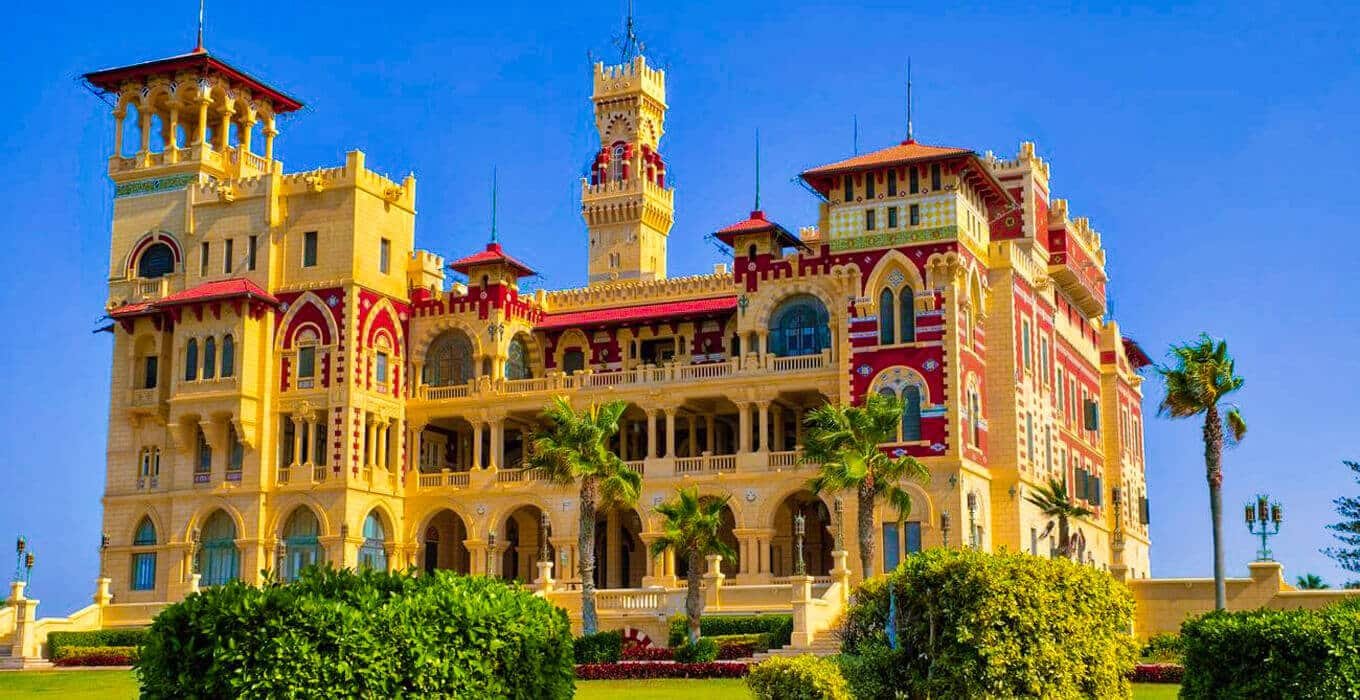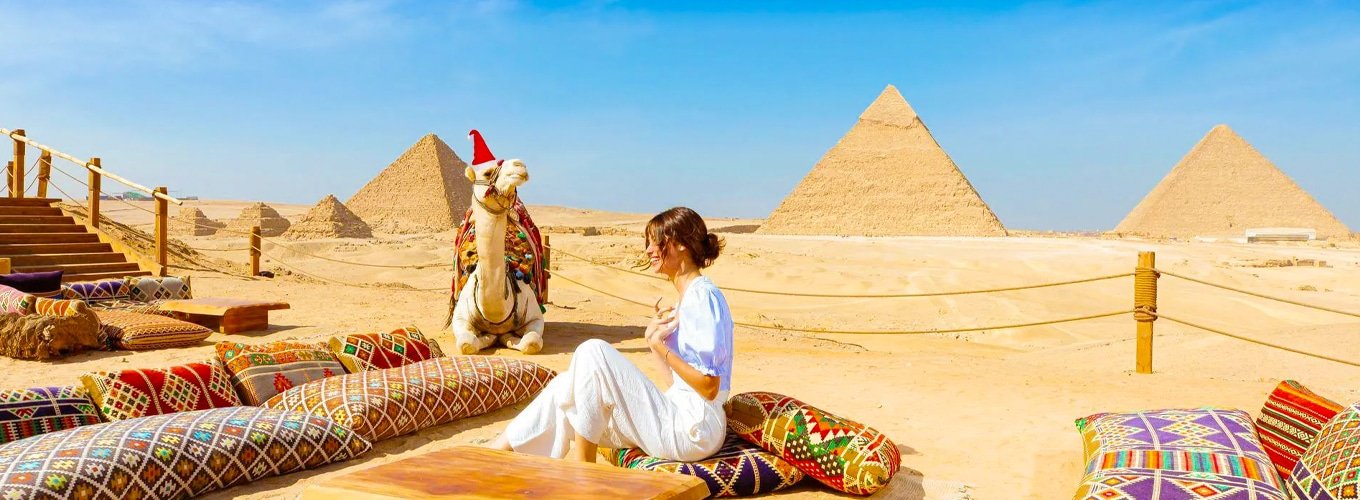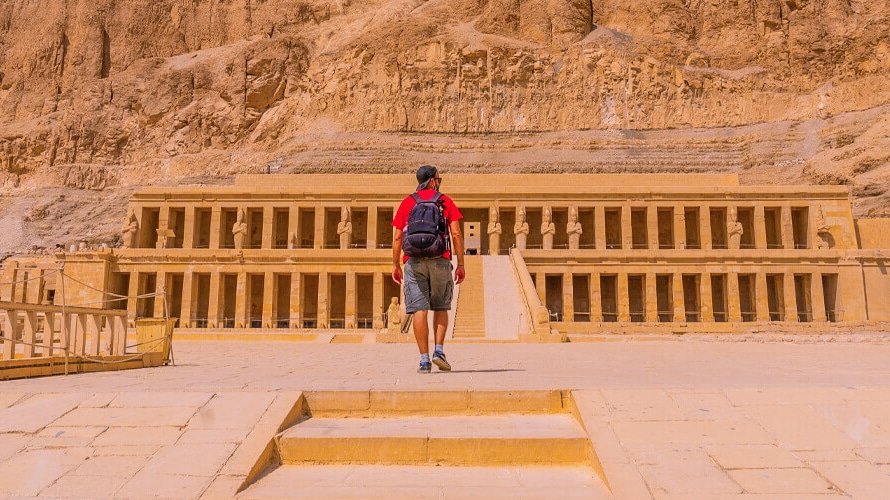How many days do you need in Egypt to step back in time, marvel at architectural wonders, and feel the pulse of a modern nation built upon an ancient foundation? It’s the question on every traveler’s mind. While the magic of Egypt could keep you enthralled for a lifetime, this guide will help you find the perfect trip length for your desired adventure.
Whether you’re a history buff eager to decode hieroglyphics, a thrill-seeker chasing desert sunsets, or simply a curious soul seeking extraordinary experiences, Egypt has something for you. Let’s dive into the ideal trip durations and suggested itineraries, so you can make every day count in this remarkable land.
Essential Destinations and Timeframes
Egypt is a treasure trove of experiences, with each city holding a unique piece of its grand story. Here’s a look at some must-visits and how to allocate your time wisely:
- Cairo (2-3 Days): The beating heart of modern Egypt is also your gateway to ancient wonders. Stand in awe before the Pyramids of Giza and the Sphinx, lose yourself in the timeworn treasures of the Egyptian Museum, and barter for vibrant souvenirs in the bustling Khan el-Khalili bazaar.
- Luxor (2-3 Days): Often called the world’s greatest open-air museum, Luxor will transport you to the age of the pharaohs. Explore the Valley of the Kings, where legendary rulers rest, marvel at the towering columns of Karnak Temple, and witness the illuminated beauty of Luxor Temple at night. For an unforgettable experience, take a sunrise hot air balloon ride over the West Bank’s ancient monuments.
- Aswan (1-2 Days): Egypt’s southern gem offers a laid-back atmosphere and stunning Nile views. Visit the enchanting Philae Temple, dedicated to Isis, and consider a day trip to the awe-inspiring Abu Simbel temples. Immerse yourself in Nubian culture at a vibrant Nubian Village, and enjoy a peaceful felucca sailboat ride on the Nile.
- Alexandria (1-2 Days): Founded by Alexander the Great, Alexandria boasts a Mediterranean spirit alongside historical gems. Explore the Roman Amphitheatre, the imposing Citadel of Qaitbay built on the ruins of the ancient Pharos lighthouse, and the modern marvel of the Bibliotheca Alexandrina, a revival of the city’s legendary library.
- Red Sea Coast (2-5 Days): After soaking up the history, unwind on the Red Sea’s pristine beaches. Resorts in Hurghada and Sharm el-Sheikh offer world-class diving and snorkeling among vibrant coral reefs, water sports, and a lively atmosphere. If you crave more tranquility, opt for smaller coastal towns like El Gouna.
Important Note: These are suggested timeframes, and you can customize your trip based on your interests!

Sample Itineraries
Choosing the right itinerary is key to maximizing your Egypt experience. Here are some options to inspire your planning:
7-Day Egypt Highlights: Cairo, Luxor, Aswan, Nile Cruise (optional)
- Days 1-3: Explore Cairo’s highlights (Pyramids, Egyptian Museum, Khan el-Khalili)
- Day 4: Fly to Luxor and start uncovering its ancient treasures (Valley of the Kings, Karnak Temple)
- Days 5-6: Embark on an optional Nile cruise to Aswan, visiting temples along the way (Edfu, Kom Ombo) or fly directly to Aswan and explore Philae Temple and the Nubian Village.
- Day 7: Fly back to Cairo for departure or onward travel.
10-Day Comprehensive Experience: Cairo, Luxor, Aswan, Nile Cruise, Alexandria
- Days 1-3: Immerse yourself in Cairo’s wonders.
- Days 4-7: Experience the magic of a Nile cruise between Luxor and Aswan, with temple visits en route.
- Days 8-9: Discover Alexandria’s historical sites and Mediterranean charm.
- Day 10: Depart from Cairo or continue your adventures.
14-Day+ Extended Adventure: All of the above, plus Red Sea relaxation, desert oases exploration (Siwa Oasis, White Desert)
- Days 1-10: Follow the comprehensive itinerary above.
- Days 11-13: Unwind at a Red Sea resort, indulge in beach time, diving, or snorkeling.
- Day 14+: Embark on a thrilling desert expedition to the otherworldly landscapes of the White Desert or the remote Siwa Oasis for a unique cultural experience.

Tips:
- Customization is Key: Mix and match these itineraries based on what excites you most.
- Nile Cruises: A Nile cruise offers relaxation and convenience for temple hopping, but you can also travel between Luxor and Aswan using flights or trains.
- Seasonality: If you opt for the extended adventure, consider the desert temperatures when choosing the time of year to visit.
Factors Affecting Your Ideal Trip Length
Choosing how many days to spend in Egypt isn’t a one-size-fits-all answer. Consider these factors to find your perfect timeframe:
Travel Style:
- Leisurely: If you savor slow travel, immersing deeply in each location, you’ll want more time. Longer stays allow you to linger at museums, soak up the atmosphere of markets, and maybe add in some relaxing days by the pool.
- Fast-paced: If you thrive on ticking off major sights in a shorter time, you could comfortably see Egypt’s highlights in a week or slightly more. Be prepared for fuller days and a higher likelihood of needing rest time upon your return.
Interests:
- Ancient History: True history buffs could easily spend weeks, even months, exploring Egypt’s numerous temples, tombs, and archaeological zones. A minimum of 10 days is recommended to go beyond the key highlights.
- Beaches: If a Red Sea getaway is the priority, a shorter trip focused on Cairo and a beach resort might be perfect.
- Modern Cities: If you’re fascinated by Cairo’s vibrant energy or Alexandria’s history, allocate a few days to experience their distinctive personalities.
- Adventure Activities: Desert safaris, hot air balloon rides, or scuba diving adventures will add days to your itinerary.
- Budget: Egypt offers fantastic value compared to many destinations, but longer trips naturally increase costs. Consider accommodation styles, whether you’ll do internal flights or slower ground transport, and if extensive tours and activities are important to you.

Time of Year:
- Summer (June-August): While less crowded, the extreme heat can be challenging for sightseeing, especially if you’re sensitive to it. Shorter trips might be more manageable during this season.
- Shoulder Seasons (Spring/Autumn): Ideal for pleasant weather and fewer crowds, but prices may be higher.
- Winter (Dec-Feb): Coolest weather, but high season for crowds and prices.
Key Point: There’s no right or wrong answer! Understanding your priorities will guide you towards the perfect trip length to have an unforgettable Egyptian experience.
Tips for Maximizing Your Time in Egypt
Egypt is a land where surprises and unforgettable moments go hand in hand. These tips will help you navigate your adventure with ease and maximize your enjoyment:
- Book internal flights: Egypt is a large country, and domestic flights can dramatically cut down on travel time compared to lengthier train or bus journeys. Consider flying between Cairo, Luxor, and Aswan to preserve precious hours for exploring.
- Consider a Nile cruise: A Nile cruise offers a relaxing and efficient way to experience multiple temples and towns along this legendary river. You’ll unpack once, and the scenery unfolds around you with minimal logistical hassle.
- Hire a reputable guide: A knowledgeable guide not only deepens your understanding of the ancient sites but can also help manage practicalities, smooth out potential language barriers, and offer insights into local customs. Invest in a good guide for a more insightful and hassle-free experience.
- Learn basic Arabic phrases: While English is widely spoken in tourist areas, knowing a few key Arabic phrases goes a long way. Simple greetings like “Salam” (hello) and “Shukran” (thank you) will add warmth to your interactions with locals.
- Embrace flexibility: In Egypt, the unexpected is often around the corner! Traffic jams, delayed openings, or a spontaneous invitation to a local’s home might alter your itinerary. Keep an open mind, a sense of humor, and allow for some spontaneity to have the most authentic and rewarding experience.
Bonus Tips:
- Get up early: Beat the crowds and the midday heat by visiting popular sites early in the morning.
- Pack wisely: Dress modestly, bring sunscreen, a hat, good walking shoes, and layers for changing temperatures.
- Stay hydrated: Carry a reusable water bottle and drink plenty of water, especially in warmer months.

FAQs
Is Egypt safe for tourists?
Egypt takes the safety of tourists very seriously. While it’s always wise to be vigilant in any foreign country, the main tourist areas and attractions have heightened security measures. Here’s what you need to know:
- Government focus: Tourism is a major part of Egypt’s economy, so visitor safety is a priority.
- Tourist Police: You’ll see a visible police presence, especially at popular sites.
- Common precautions: Take sensible precautions you would in any major city—keep valuables secure, be aware of your surroundings, and use reputable tour operators for excursions.
- Trustworthy locals: The majority of Egyptians are friendly and welcoming, and happy to offer help if needed.
- Stay updated: Check the latest travel advisories from your home country’s government for up-to-date safety information.
What is the best time of year to visit Egypt?
The ideal time depends on your preferences:
- Shoulder Seasons (Spring: March-May / Autumn: September-November): The most pleasant weather with warm days, cooler evenings, and manageable crowds.
- Winter (December-February): Cooler weather, with larger crowds and higher prices, especially during the holiday season.
- Summer (June-August): Very hot, especially in southern Egypt, but fewer crowds. Consider this if you’re mainly interested in beach resorts and handle the heat well.
Important Festivals: Keep in mind Ramadan, when operating hours might be altered, and Eid celebrations, which can be both festive and very crowded.
What should I pack for Egypt?
- Clothing: Lightweight, modest clothing covering shoulders and knees (especially for visiting religious sites), a hat, sunglasses, comfortable walking shoes, and a light jacket or sweater for variable temperatures.
- Essentials: Sunscreen, insect repellent, reusable water bottle, basic toiletries, hand sanitizer.
- Medications: Any prescription medications, as well as basic remedies for potential stomach upset, headache, etc.
- Adaptability: Women may want to pack a scarf, useful as a head covering and for adapting to the more conservative dress in some places
Do I need a visa for Egypt?
Visa requirements vary depending on your nationality. Most visitors can obtain a visa upon arrival at the airport for a fee. However, it is crucial to double-check the specific requirements for your citizenship well in advance of your trip. You can find up-to-date information on your government’s travel websites or the Egyptian embassy.
What are some cultural customs to be aware of?
- Modest Dress: While tourist hubs are more relaxed, both men and women should dress modestly in public. Avoid overly revealing clothing.
- Respect Religious Sites: Cover shoulders and knees when visiting mosques or churches. Women may need a head covering.
- Tipping (Baksheesh): Tipping is customary for many services. Ask your guide or hotel for advice on appropriate amounts.
- Haggling: Bargaining is expected in markets. Start low and negotiate respectfully.
- Photography: Always ask permission before taking photos of people. Some sites may have photography fees or restrictions.
Conclusion
From the towering pyramids to the serene Nile, the vibrant bazaars to the jewel-like waters of the Red Sea, Egypt is a feast for the senses. Its layers of history, friendly people, and diverse experiences offer something to ignite wonder in every traveler.
Whether a whirlwind week whisks you through the must-sees or a luxurious, extended adventure lets you delve deeper, Egypt will leave its mark. With some planning and an open heart, you’ll unlock the magic of this extraordinary land.
Related Article to Read:







